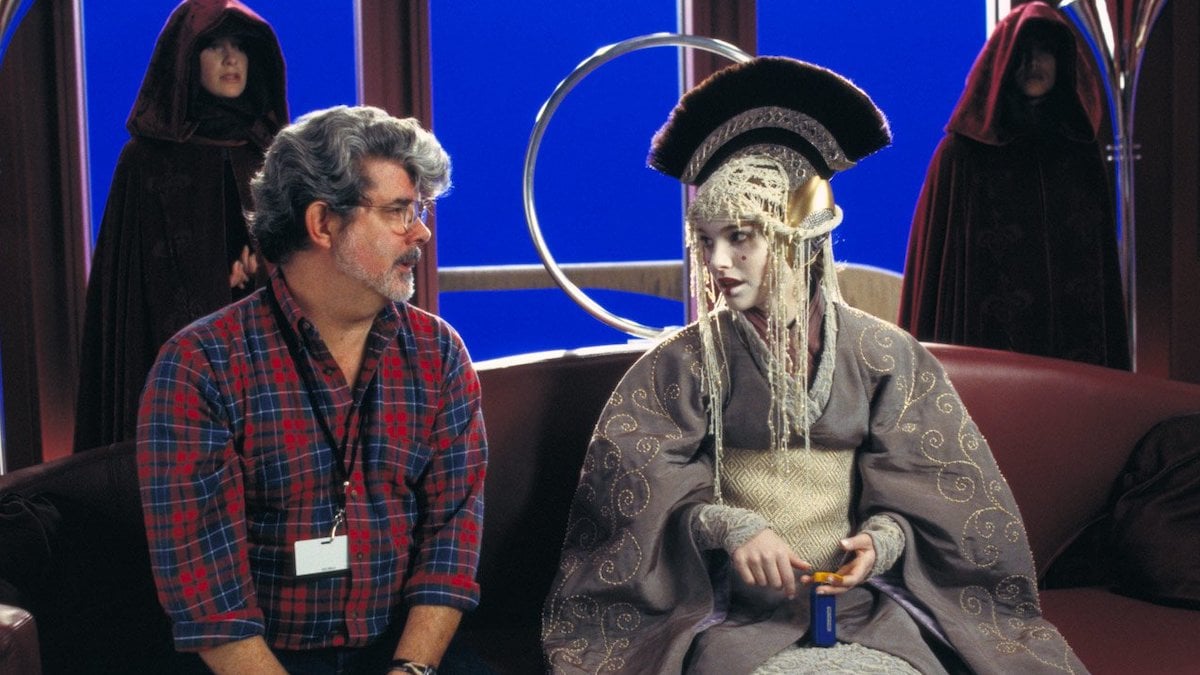
What was George Lucas going to do with $4 billion, anyway?
The Star Wars creator, now 68, recently sold the entirety of his company LucasFilm to Disney for $4.5 billion. Given that Lucas owned absolutely everything, the man got to revel in all the profit himself.
Almost instantly, of course, everybody began to ponder whether or not he needed all that cash. The answer is no, apparently, given that Lucas has announced his (genuinely admirable) decision to donate most of it to educational charities.
Lucas spoke out about his intentions back in 2010, when he released the following (somewhat lengthy) statement:
“Storytellers are teachers and communicators who speak a universal language. That was Homer’s primary role, and both Plato and Aristotle used narratives and dialogues as a means of educating. Good storytelling is based on truths and insights, and a good storyteller is ultimately a teacher – using the arts as a means of making education emotionally meaningful. These are all tools at our educational system’s disposal, but too often we aren’t making use of them.
When I was in high school, I felt like I was in a vacuum, biding time. I was curious, but bored. It was not an atmosphere conducive to learning. I was fortunate that I found my path and my language.
It’s scary to think of our education system as little better than an assembly line with producing diplomas as its only goal. Once I had the means to effect change in this arena, it became my passion to do so – to promote active, life-long learning. I believe in the artisan school of learning, through apprenticeships and Aristotelian questions and discussion. This level of engagement dates back to the beginning of human life, but it’s still the best way of doing things. There have to be universal standards – particularly in education – and while it seems unwieldy, there is a willingness among educators to share their best practices.
Ultimately, that is why I created Edutopia and the George Lucas Educational Foundation.
The focus of GLEF has been to share educational innovations – cooperative and project learning, mentorship, parental involvement, and technological advances. This all comes straight from those on the front lines, from teachers who are putting these methods into practice. We are the facilitators. Our goal has been to showcase bold successes and inspire others to further increase the appetite for education. Our hope is that administrators, teachers, and parents will see the power of these collective efforts and join the fight for wider reforms.
But reform is just the beginning. We need to build new foundations, fostering independent thought and a desire to keep learning. Our students need to come away with more than just survival skills, and more than just what is required to complete the program. We need to promote critical thinking and emotional intelligence. We need to focus on building an education system that promotes different types of learning, different types of development, and different types of assessment. We have an opportunity and an obligation to prepare our children for the real world, for dealing with others in practical, project-based environments. It’s about working together and building character – being compassionate, empathetic, and civil as a means to a greater end.
As technology changes, so do students. So should classrooms, and so should our methods of teaching. In a few short years, connectivity has gone from a technological novelty to a daily necessity. It’s how our culture communicates, and our children are at the forefront of its use. Understanding those tools – and how to integrate them into learning – is an integral step in defining our future.
My pledge is to the process; as long as I have the resources at my disposal, I will seek to raise the bar for future generations of students of all ages.
I am dedicating the majority of my wealth to improving education. It is the key to the survival of the human race. We have to plan for our collective future – and the first step begins with the social, emotional, and intellectual tools we provide to our children. As humans, our greatest tool for survival is our ability to think and to adapt – as educators, storytellers, and communicators our responsibility is to continue to do so.”
So, what do you make of this show of generosity? Should George Lucas donate it to a different cause entirely? Let us know, as usual, in the comments section below.
Source: Collider

